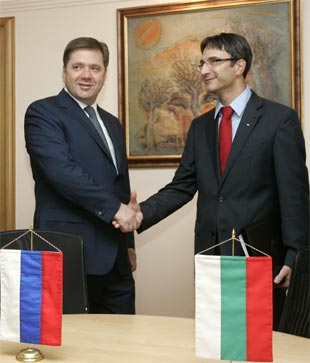
According to a 2023 National Statistical Institute study, more than 88% percent of households in Bulgaria have access to the Internet. Most users are online every day, and more than 95% are active on social networks. The share of people who read the..
Radio Bulgaria, as a program of the BNR published in 11 languages, has an audience spread over six continents. Part of it has a special attitude towards our country and wants to learn more about its history, culture, traditions and..
The international initiative No Elevators Day will be celebrated today with a climb to the fourteenth floor of the College of Tourism in Burgas. Anyone who wants to join in can test their physical strength by participating individually or in a team..
The book Eyeball It: Village Culinary Adventures by Rory Miller - an American living in Bulgaria - will be presented tonight in Chicago at the Magura..
Autism spectrum disorders are growing exponentially around the world. Bulgaria is no exception. While more than a decade ago, one in 10,000 children..
You tell me what you have on your table so I can tell you what you are celebrating. This is a joking way of looking at the Bulgarian calendar of holidays..

+359 2 9336 661
